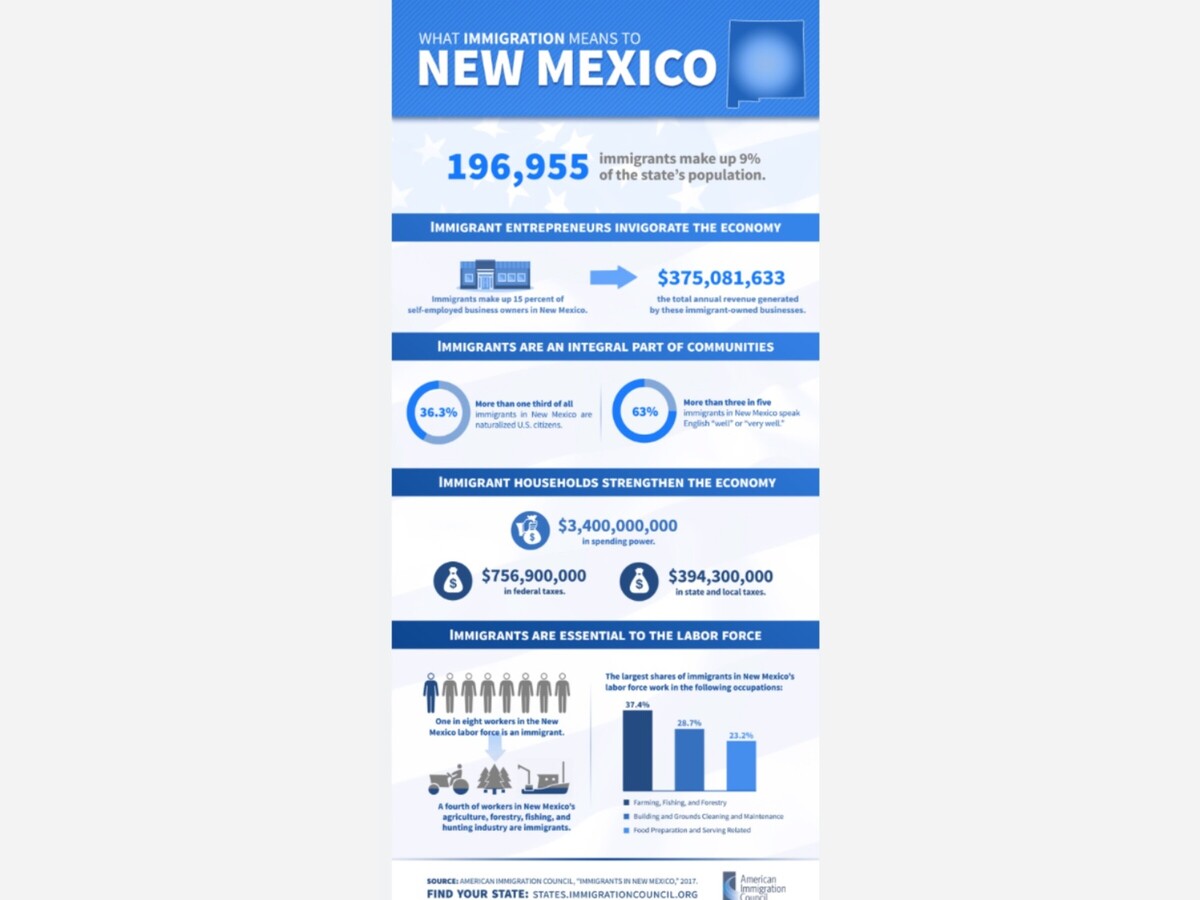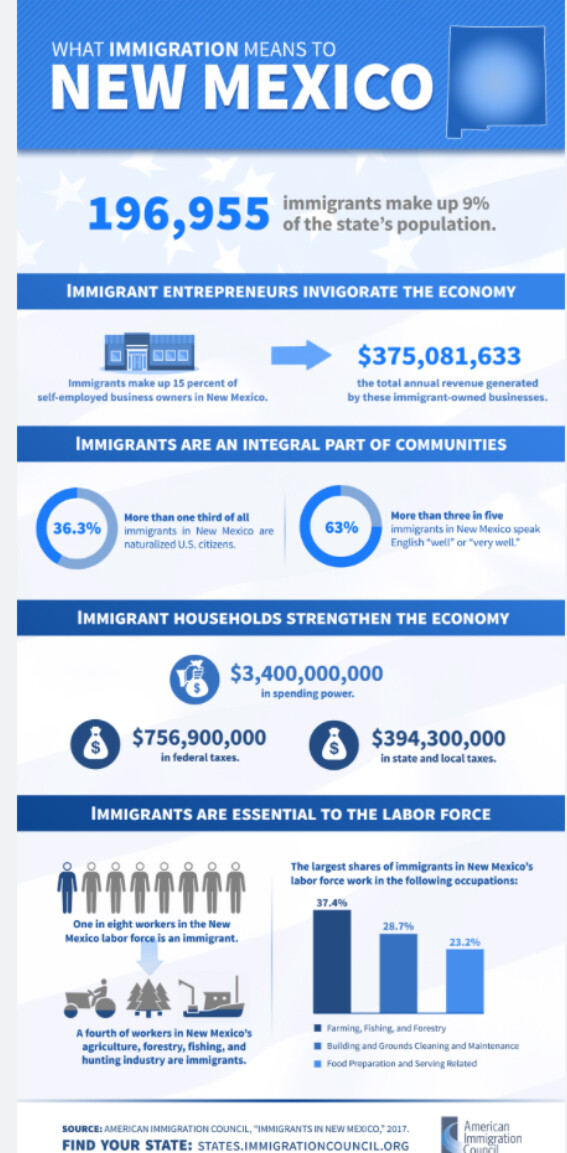Image


International students comprise only 5.9 percent of all students in higher education, but provide significant economic, academic and cultural contributions that enrich learning, enrollment and funding opportunities for American students.
There are approximately 408,000 undocumented students currently enrolled at public and private higher education institutions across the entire country, but especially in California, Texas, Florida, New York, and New Jersey. Even though undocumented immigrants contribute to federal, state, and local taxes ($96.7 billion in 2022), undocumented students are ineligible for federal student aid. Even on the state level, only 18 states across the country offer undocumented students access to in-state tuition rates and state financial aid. As a result, many undocumented students forego higher education or are forced to finance any higher education opportunities through private loans and by working simultaneously while studying. Despite these barriers, undocumented college students have persisted, going on to graduate and bettering their lives and the lives of their families and communities.
The administrations attack on Harvard University and other Ivy League universities with targeting of immigrants has become an increasingly common occurrence and is having a chilling effect on students wanting to learn in America’s colleges.
Amid ICE raids on college campuses, immigrant and undocumented students are living in fear for themselves and family members
Changes in immigration policies and increased enforcement have created a climate of fear and uncertainty for international students and those both documented and undocumented family members. The U.S. Department of Homeland Security has ended the practice of avoiding immigration enforcement at colleges, meaning that campuses are no longer protected areas from immigration raids. There have also been reports of revoking visas for international students, over political activities, according to U.S. News & World Report. Additionally, some universities are facing investigations for scholarship programs specifically for DACA recipients used as tools to enhance enrollment and to increase recruitment opportunities for university sports and academic programs.
Higher education in the U.S. benefits from the participation of immigrant and international students.
First and second-generation individuals comprise 31% of all students enrolled in higher education, a growing figure that underscores the importance of immigrant-origin students in the classroom and our workforce.
The share of STEM Workers Who Are First-Generation Immigrants in New Mexico is 10.6%
Now, undocumented students and students with undocumented family members (students from mixed-status families) are experiencing a heightened fear of deportation due to the rhetoric and policies of the Trump administration. The attacks to immigrant communities have been broad and targeted in fear mongering. From states beginning to rollback higher education aid access for undocumented students to others mounting legal challenges that could undermine Plyler v. Doe — the 1982 landmark Supreme Court case that has guaranteed the right to a public education to all students, regardless of immigration status — undocumented students are watching their rights dissolve before their eyes.
In addition, with reports of student groups organizing events to “call ICE” on their undocumented peers, and new trends of dressing up as ICE agents around college campuses, undocumented students are living in fear, taking a toll on their mental health. Is this really the higher education environment we want? Colleges where students live in fear, waiting to be plucked off campus at a moment’s notice?
The effects of campus raids of undocumented students are certain to reverberate across the entire student body and the overall campus racial climate. Undocumented students are classmates, lab partners, fellow club leaders, engaged discussion leaders, and more. The diversity of backgrounds and life perspectives present in higher education are what make it the rich learning experience that it is. By taking away that opportunity, we will never know how much America is losing in unrealized potential. The undocumented students who “stop out” of higher education could be the next scientist, author, or entrepreneur, but whose full potential is hindered by misguided policies. The loss of undocumented students from college campuses would not only be a loss for higher education, but for all of society and our country’s economic prosperity.
New Mexico provides eligible undocumented residents, including DACA recipients, with access to in-state tuition, state financial aid, professional and occupational licensure in at least most professions, and driver licenses.
New Mexico Senate Bill (S.B.) 582, signed into law on April 8, 2005, provides eligible undocumented students, including DACA recipients, with access to in-state tuition just like residents. Students must meet certain requirements to access in-state tuition, including:
Refugee In-State Tuition: Residency requirements state that refugees who are lawfully in the U.S., have obtained permanent status from the Department of Homeland Security (DHS), or non-citizens serving active duty in the armed forces of the U.S may establish residency for tuition purposes.
New Mexico Senate Bill (S.B.) 582 provides eligible undocumented students, including DACA recipients, with access to state financial aid. The bill extends access to state financial aid to all residents of New Mexico on the same terms and regardless of immigration status, provided they meet the criteria for in-state tuition.
New Mexico only extends financial aid to publicpostsecondary institutions.
New Mexico Senate Bill (S.B.) 140, also known as “The Opportunity Scholarship Act,” signed into law on March 4, 2022, makes state aid available to cover all tuition costs for New Mexico undergraduates seeking a trade certificate, associate degree or bachelor’s degree in an in-state public college or university. Undocumented students appear eligible for this proposed program. Students must meet certain requirements to qualify, including:
New Mexico allows individuals to obtain professional and occupational licensure in at least most occupations regardless of their immigration status.
New Mexico Senate Bill (S.B.) 137, passed on February 18, 2020, establishes that a person is eligible for occupational or professional licensure for which that person is qualified, regardless of the person’s citizenship or immigration status. The bill applies to professions or occupations that do not statutorily require a specific type of immigration status, including teachers, dental hygienists, doctors, nurses, and respiratory therapists.
New Mexico Senate Bill (S.B.) 219, signed into law on April 6, 2021, removes immigration status requirements for a number of professional and occupational licenses not included in previous legislation. S.B. 219 removesstatutory immigration status requirements to professional licenses, opening up positions like optometrists, physical therapists, real estate agents, and home inspectors to individuals regardless of immigration status. Applicants without a Social Security Number (SSN) can provide an Individual Tax Identification Number (ITIN) when seeking a professional license.
To learn more about professional/occupational licensure requirements, review TheDream. US & Immigrant Finance Resource guide here.
To learn more about state business and tax registration requirements, review The Dream.US & Immigrant Finance Resource guide here.
